Internet use is increasing worldwide every day -- in fact, over four billion people around the world use the internet, as of 2018.
Marketing is, and always has been, about reaching customers where they are. TV commercials, print advertisements, and billboards all attempt to do just that.
The internet offers unique benefits other marketing mediums can’t offer -- scope of reach, the option to personalize content, and the opportunity to build far-reaching relationships with customers, being just a few.
But the internet can be an overwhelming and all-encompassing entity, filled with videos and recipes and news articles and e-commerce sites. In the crowded space of the internet, how are you supposed to differentiate your business to reach the right audience?
The answer is internet marketing.
Internet marketing leverages digital channels, including email, social media, websites, and search engines, to reach your ideal audience. Unlike more traditional advertising mediums, such as print, the internet encourages two-way conversations between your business and your customer, ideally creating better long-term customer retention.
There’s no avoiding it: internet marketing is critical for the success of your business in 2018. But with all the gimmicks and tricks, it can be difficult to distinguish short-term wins from effective long-term strategies, which is why we’ve created an ultimate guide. Here, we’ll cover everything from marketing strategies to real-world examples, to ensure your business reaches the right people out of that four billion.
What is Internet/Online Marketing?
Online marketing, also known as internet marketing or web advertising, is a form of marketing that uses the internet to deliver promotional messages to customers through digital channels such as search engines, email, websites, and social media.
Online marketing strategies include web design, SEO, email, social media, PPC, and other internet-related methods.
Let’s dive into two separate goals you’ll have with internet marketing, as well as the necessary methods you’ll want to take to achieve those goals.
Internet Marketing to Attract New Customers
You can use online marketing strategies to attract new customers. To do this, you’ll want to focus primarily on paid social media ads, search engines, and web design.
For instance, you might use Facebook’s Lookalike Audiences to get your message in front of an audience similar to your core demographic. Or, you could pay a social media influencer to share images of your products to her already well-established community. Paid social media can attract new customers to your brand or product, but you’ll want to conduct market research and A/B testing before investing too much in one social media channel.
To attract new customers, you also need to maintain a powerful SEO presence. With 89% of B2B buyers and 81% of shoppers using the internet for research before making purchasing decisions, it’s imperative your business is at the forefront of search for related keywords.
Having a strong SEO presence also translates to more in-store purchases, as well -- in fact, 78% of local mobile searches result in an offline purchase, and local searches lead half of all mobile users to visit stores within one day.
Finally, it’s critical you spend time and resources on your business’s website design. When these aforementioned customers find your website, they’ll likely feel deterred from trusting your brand and purchasing your product if they find your site confusing or unhelpful. For this reason, it’s important you take the time to create a user-friendly (and mobile-friendly) website.
Internet Marketing to Cultivate Brand Loyalists
Internet marketing is for more than just attracting new customers -- it’s also critical for maintaining a loyal, long-term customer base. And, since it costs five times more to attract a new customer than it does to keep an existing one, this is an equally important goal.
You’ll want to use email, blogging, and social media tactics to increase brand awareness, cultivate a strong online community, and retain customer loyalty. Consider sending personalized emails to past customers to impress or inspire them -- for instance, you might send discounts based off what they’ve previously purchased, wish them a happy birthday, or remind them of upcoming events.
To properly employ email campaigns, you’ll need an email list. Here’s how to build an email list from scratch.
Additionally, you might use social media to showcase your brand’s personality and hear directly from your customers. Consider hosting a Twitter chat, posting surveys on Instagram, or creating fun contests on Facebook.
Internet Marketing Strategies
- Design a user-friendly website
- Optimize your site for search engines
- Use email marketing or opt-in email campaigns
- Write online press releases
- Create a blog
- Develop social media contests and campaigns
There are six strategies you’ll want to employ to ensure you’re successful at internet marketing.
First, you want to create a user-friendly, and mobile-friendly, website. The design of your site will showcase your brand’s personality and differentiate your business from every other online business. But it’s more than just looking good -- a cleaner, more well-organized site structure can affect how you rank in the SERPS.
For help designing your website or ensuring it’s up-to-par, check out 8 Guidelines for Exceptional Web Design, Usability, and User Experience.
Next, you’ll need to keyword optimize your site for search engines. Essentially, this means you’ll choose keyword(s) that relate to your business, and incorporate those keywords into the URL, body text, image text, headers, and navigation bar.
For tips on keyword optimizing your entire site, check out On-Page SEO 101: Tips for Keyword Optimizing the Most Critical Parts of Your Website.
If you’re interested in focusing on keyword optimizing your blog posts, consider reading Blog SEO: How to Search Engine Optimize Your Blog Content.
Email marketing and opt-in marketing campaigns are one of the most effective long-term strategies to connect with potential customers and cultivate brand loyalty.
For everything from getting started with email marketing, to email marketing best practices and lead magnets, check out The Ultimate Guide to Email Marketing.
Writing online press releases is an additional way to increase online coverage of your business from other sources, which will also positively affect your ranking in the SERPs. Plus, if a local news outlet covers your business, you’ll receive their audience, which you otherwise might not have reached.
To get started writing a press release for your business, consider How to Write a Press Release [Free 2017 Press Release Template + Example].
I might be biased, but blogging is one of the best ways to attract a large audience to your site, establish your business as a thought leader in your industry, and prove your brand to be both useful and current.
Writing blog posts is especially effective for providing different opportunities to land on page one of search engines -- for instance, maybe your eyeglass store’s website is on page three of Google for “eyeglasses,” but your “Best Sunglasses of 2018” blog post is on page one, pulling in an impressive amount of traffic (over time, that blog post could also boost your overall website to page one).
To learn everything from choosing a domain name to writing your first blog post, check out How to Start a Blog: A Step-by-Step Guide [+ Free Blog Post Templates].
Social media contests and campaigns are exceptional opportunities to engage with your online audience, form relationships with customers, and learn about your buyer’s persona.
For an overarching compilation on everything you need to know about social media campaigns -- from how to craft perfect posts on Facebook to the most shared phrases on LinkedIn -- take a look at Everything You Need to Know about Social Media Campaigns.
Finally, take a look at our Essential Step-by-Step Guide to Internet Marketing to dive deeper into the six essential steps of internet marketing.
How to Do Online Marketing
- Choose the right keywords and optimize your site for search
- Create a mobile-optimized and user-friendly site
- Publish blog posts regularly
- Conduct email marketing campaigns
- Encourage conversation on social media accounts
- Publish online press releases
- Cultivate paid social media campaigns
Online Marketing Examples
There are hundreds, if not thousands, of online marketing examples to inspire your next internet marketing campaign.
Here, I’ll dive into seven real world examples of social media, email, SEO, and website marketing methods. I’ll also include links to additional blog resources at the bottom, for even more exceptional ideas.
1. Social Media: Under Armour’s “I Will What I Want” Campaign
Under Armour came up with the hashtag “I Will What I Want” to encourage powerful athletic women to achieve their dreams despite any opposition they might face. The hashtag, first used by American Ballet Theatre ballerina soloist Misty Copeland, blew up on Facebook after supermodel Gisele Bündchen used it in one of her Facebook posts. Many other female athletes have also used the hashtag.
The campaign spreads a positive message of female empowerment, while also highlighting Under Armour’s women apparel. The campaign reached five billion media impressions, increased Under Armour’s women’s sales by 28 percent, and pulled in an additional 42 percent of traffic to their website.

Image courtesy of Giselle Bündchen’s Facebook account.
2. Email: JetBlue
Companies often use email marketing to re-engage past customers, but a “Where’d You Go? Want To Buy This?” message can come across as aggressive, and you want to be careful with your wording to cultivate a long-term email subscriber. This is why JetBlue’s one year re-engagement email works so well -- it uses humor to convey a sense of friendliness and fun, while simultaneously reminding an old email subscriber they might want to check out some of JetBlue’s new flight deals.
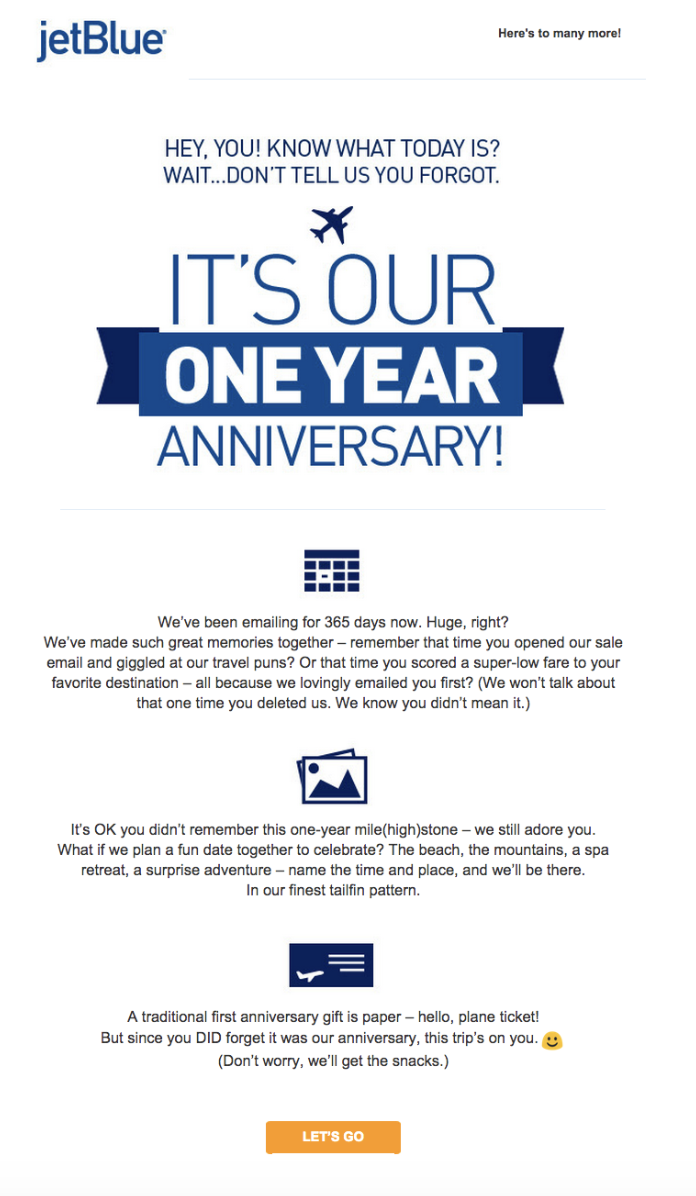
3. Social Media: Disney and Make-A-Wish’s “Share Your Ears” Campaign
Disney and Make-A-Wish, long standing partners, created a #ShareYourEars campaign to raise money for the Make-A-Wish foundation -- every time someone posted a picture on Facebook, Twitter, or Instagram with the hashtag, Disney would donate five dollars.
Disney initially stated they wouldn’t exceed one million in donations, but ended up donating two million after the campaign blew up. #ShareYourEars campaign garnered 420 million social media impressions, and increased Make-A-Wish’s social media reach by 330%. The campaign is a powerful example of using an internet marketing strategy for a good cause. #ShareYourEars raised brand awareness, cultivated a connected online community, and positively affected Disney’s brand image.
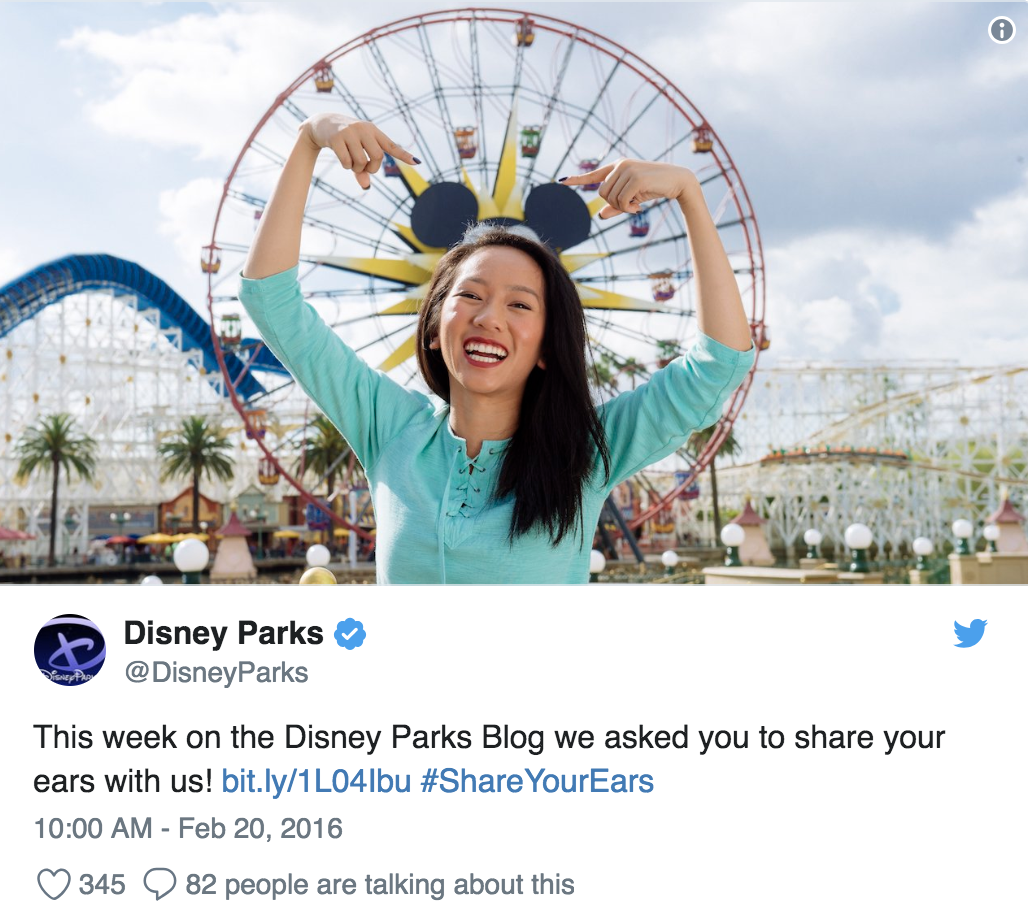
Image courtesy of ABC7 News.
4. SEO: Moz’s case study for Pipedrive, a sales CRM
Using a content marketing strategy that included content creation, outreach, and guest posting, Pipedrive, a sales CRM, was able to rank #1 for a high-volume keyword -- “sales management” (9,900 search volume). They were able to outrank SalesManagement.org, InsightSquared, and even US News and Wikipedia. They published their strategy on Moz.
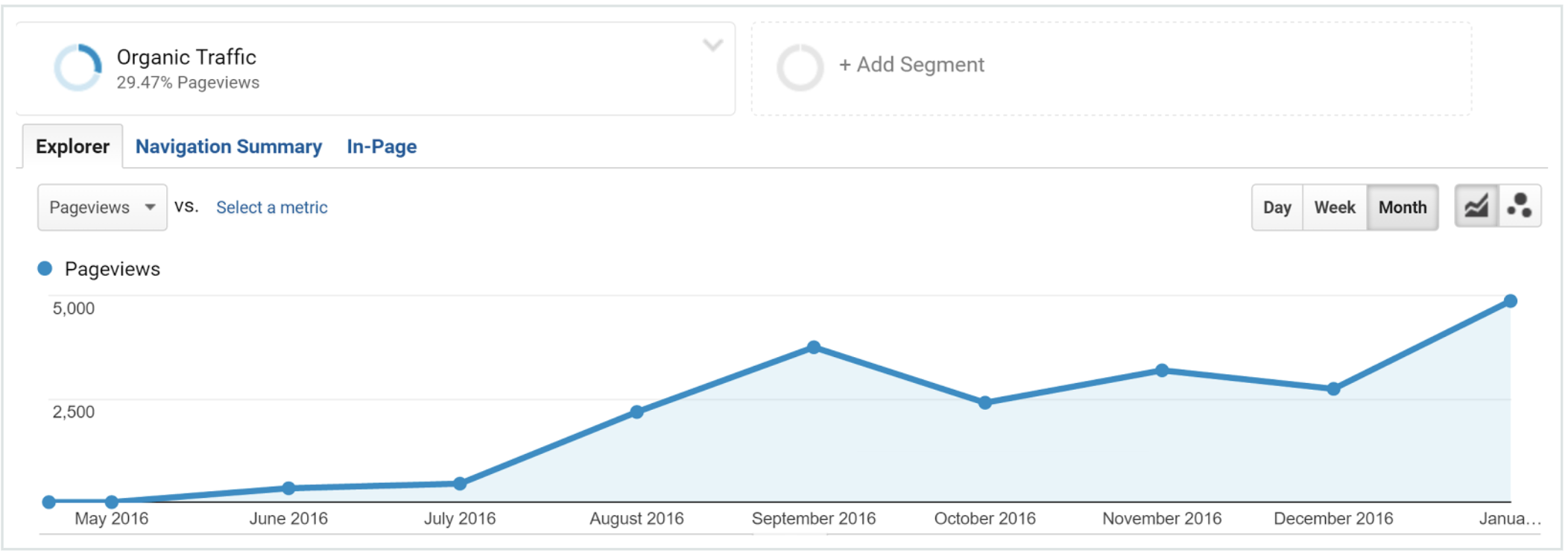
Image courtesy of Moz.
5. SEO: Brian Dean’s YouTube strategy
Brian Dean, an SEO expert and the creator of BackLinko, uses SEO tactics to rank #1 on YouTube for keywords like “on page SEO” and “video SEO”. Initially, Dean admits his YouTube account struggled to get any views. Employing SEO methods like keyword optimization has enabled Dean to rise to #1 on YouTube for search results related to his business. He published his full strategy on Backlinko.
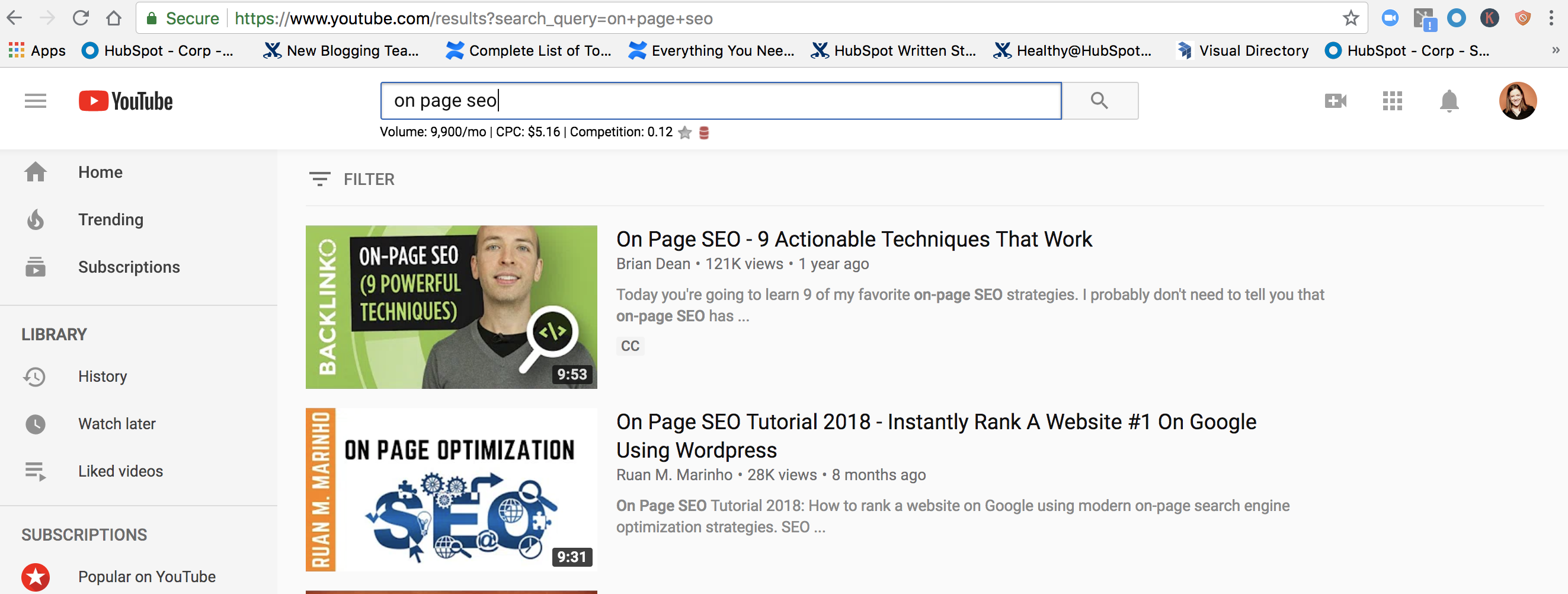
6. Web Design: DisabledGO
DisabledGO, an information provider for people with disabilities in the UK and Ireland, hired Agency51 to implement an SEO migration strategy to move DisabledGO from an old platform to a new one. By applying 301 redirects to old URLS, transferring metadata, setting up Google webmaster tools, and creating a new sitemap, Agency 51 was able to successfully transfer DisabledGO to a new platform while keeping their previous SEO power alive. Additionally, they were able to boost visitor numbers by 21% year over year, and the site restructuring allowed DisabledGO to rank higher than competitors. Their case study is available on SingleGrain.com.
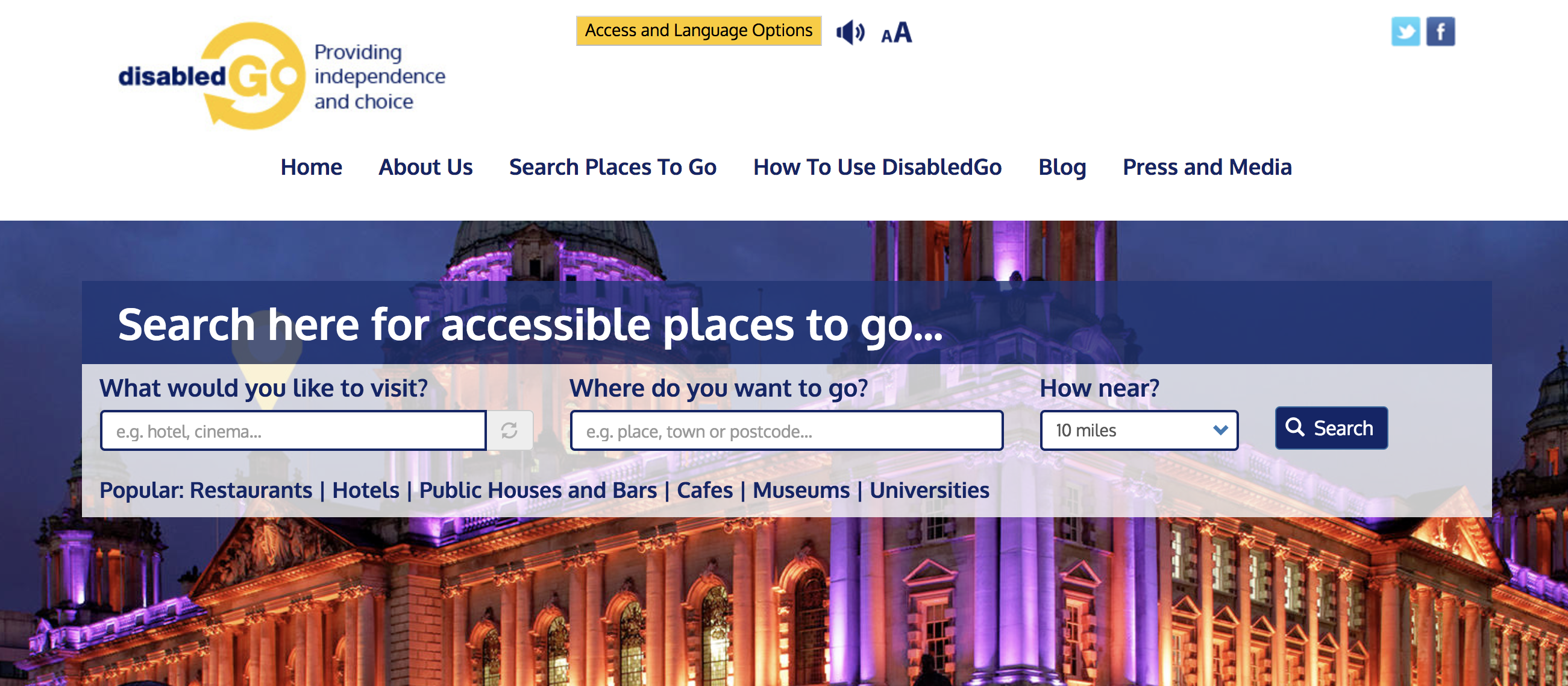
More Internet Marketing Examples:
- 19 of the Best Email Marketing Campaign Examples We've Ever Seen [+ Template]
- 5 Real Examples of Engaging Social Media Campaign Ideas
- The Best of B2B Marketing Content: 10 Examples
Top Online Marketing Tools
- HubSpot
- Buzzsumo
- Canva
- GTmetrix
- Ahrefs
- Buffer
- Facebook Insights
- SocialRank
- TweetReach
- Trello
- Crazy Egg
- Google Keywords Planner
Ultimately, your internet marketing strategies will work best if you incorporate inbound marketing methodology. First and foremost, you want all your online content to add value to your customers'’s lives. This is the only way you’ll attract quality leads and build deep relationships with your online community for the long-term.
No comments:
Post a Comment